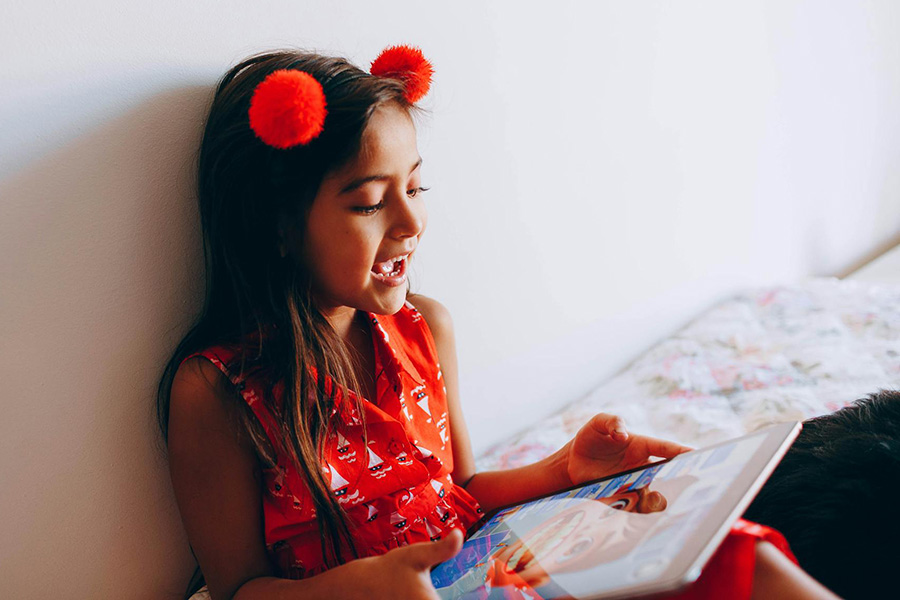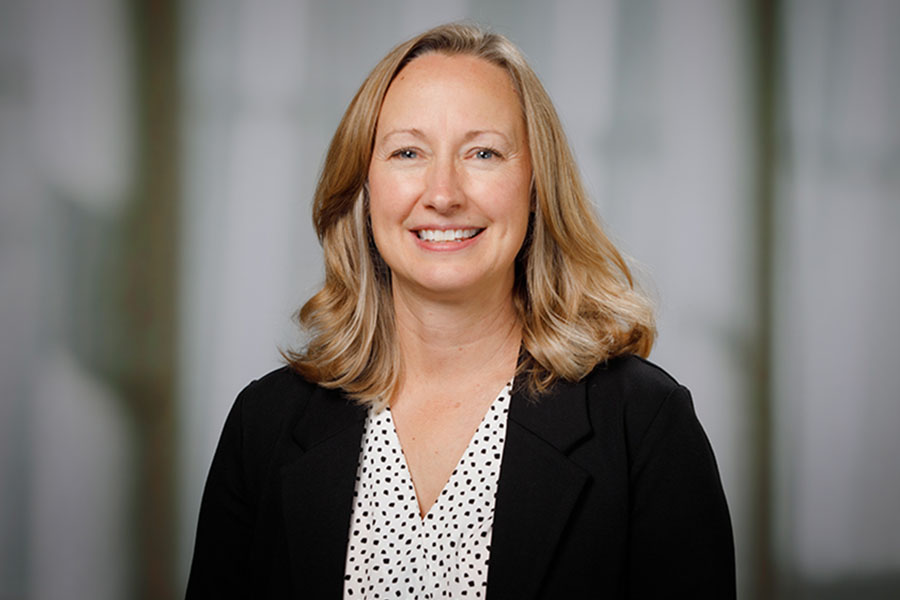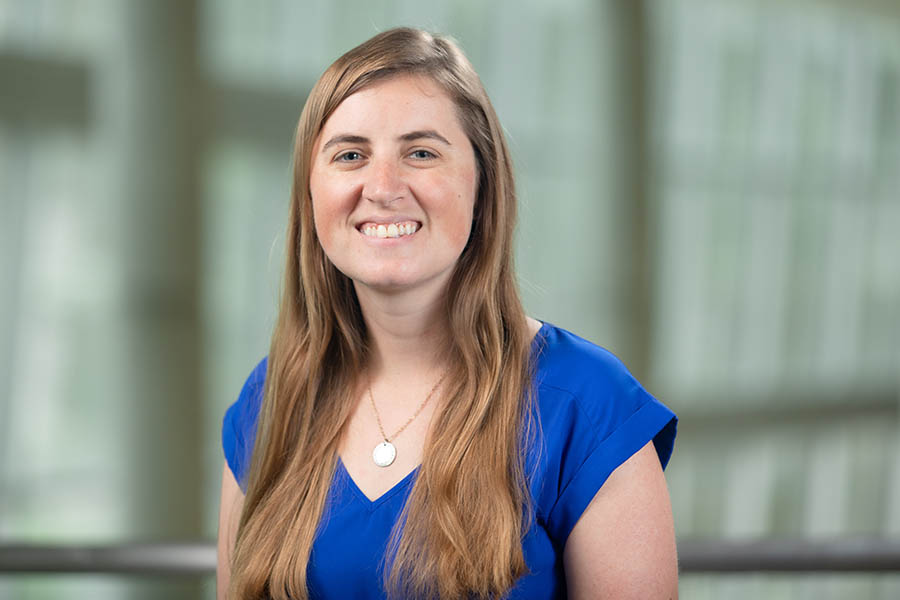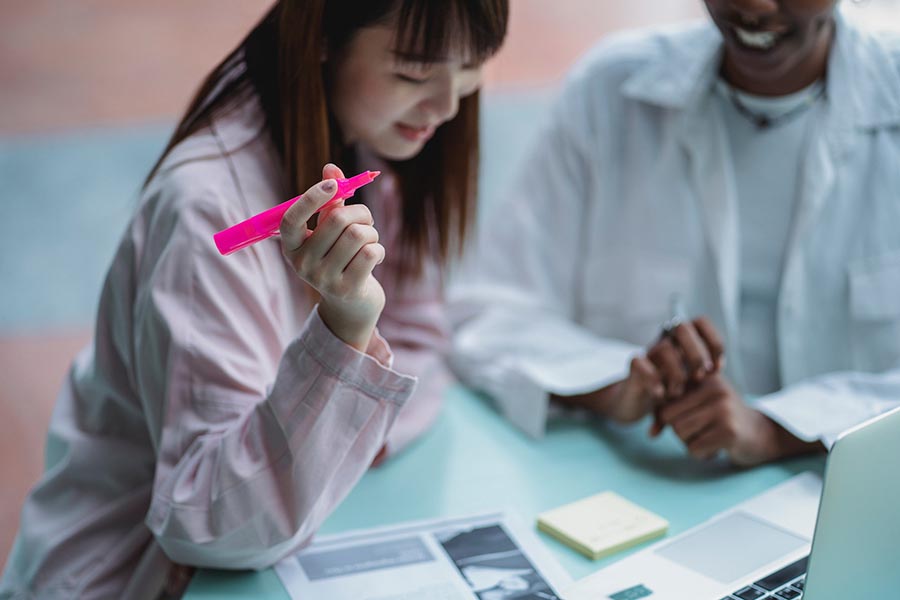Augmentative and Alternative Communication Lab

Our lab aims to improve the lives of individuals who use augmentative and alternative communication by developing and evaluating augmentative and alternative communication tools, strategies and processes.
Over five million people in the United States cannot rely on speech alone to be heard and understood. To improve their participation in society, augmentative and alternative communication strategies such as speech-generating apps on tablets, communication devices controlled by eye movements and communication boards can be used; however, learning and using these tools is not always an easy or intuitive process.
Our work has focused on the development and evaluation of new augmentative and alternative communication access technologies (e.g., brain-computer interface [BCI], multimodal access methods such as eye-tracking and switch-scanning), training tools to support the participation of individuals with limited speech in healthcare and community settings and apps to support clinical decision-making in augmentative and alternative communication.
The Augmentative and Alternative Communication Lab is located within UNMC's Munroe-Meyer Institute Department of Speech-Language Pathology.
Approach
Our work is accomplished through close collaborations with individuals who use augmentative and alternative communication and their families/companions, clinical practitioners, engineers, students, faculty, researchers and industry partners. Our collaborative model has allowed us to blend user-centered technology development, clinical practice and real-life application to translate augmentative and alternative communication research into clinical practice and community use.
Our Team
Our research lab includes faculty with expertise in augmentative and alternative communication and speech-language pathology, engineers, clinical speech-language pathologists, research assistants with lived experiences as a person who uses augmentative and alternative communication or family member and students. In our laboratory, we offer interdisciplinary training opportunities in augmentative and alternative communication research and clinical translation of new technologies and processes to improve augmentative and alternative communication services.
Current Grants
Title |
Grant Type |
More Information |
|---|---|---|
|
Rehabilitation Engineering Research Center in AAC
|
National Institute on Disability Independent Living and Rehabilitation Research 90REGE0014 PI: LightSite PI: Fager |
|
|
Adaptive & Individualized AAC - Phase 2 SBIR |
5R44DC018437-04 PI: Fager |
|
|
Exploration of AAC Training Supports for Health Care Providers |
American Speech Language Hearing Foundation Co-PIs: Fager & Gormley |
|
|
AAC Life Transitions Lab |
MMI Guild Grant PI: Fager |
|
|
Enhancing Care for Individuals with Disabilities through Virtual Health Care Provider (and Caregiver) Training, Year 2 Continuation |
Nebraska Council on Developmental Disabilities Co-PI: Halbur, Carroll, Gormley |
|
|
Enhancing Care for Individuals with Disabilities through Virtual Health Care Provider Training |
Nebraska Council on Developmental Disabilities Co-PI: Halbur, Carroll, Gormley |
|
|
Teaching Acute Care Providers to Use Visual Supports and Create Communication Opportunities in Healthcare Routines: Effects of a Just-in-Time AAC Training |
American Speech Language Hearing Foundation PI: Gormley |
|
|
AACtive Learning Hub: Just-In-Time Training Development and Evaluation |
Munroe-Meyer Guild PI: Gormley |
Faculty, Staff and Student Research
Explore research publications focused on many aspects of disability performed by MMI's faculty, staff and students in the Augmentative and Alternative Communication Lab.
- Susan Fager, PhD, CCC-SLP, American Speech-Language-Hearing Association Fellow
- Jessica Gormley, PhD, CCC-SLP

Susan Fager, PhD, CCC-SLP
Scottish Rite Associate Professor, MMI
Director, Munroe-Meyer Institute Department of Speech-Language Pathology
Fellow, American Speech-Language-Hearing Association
Speech-Language Pathologist

Jessica Gormley, PhD, CCC-SLP
Assistant Professor, MMI Dept of Speech-Language Pathology
Research Coordinator, MMI Speech-Language Pathology
Augmentative and Alternative Communication Program Leader, MMI Speech-Language Pathology
Speech-Language Pathologist

Student Opportunities
Explore opportunities at MMI for post-doctoral fellows, doctoral interns, graduate and undergrad students to assist faculty in research efforts.